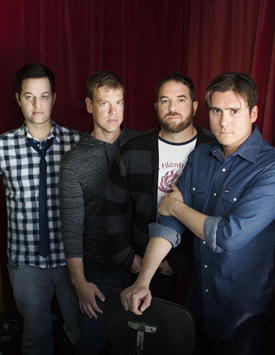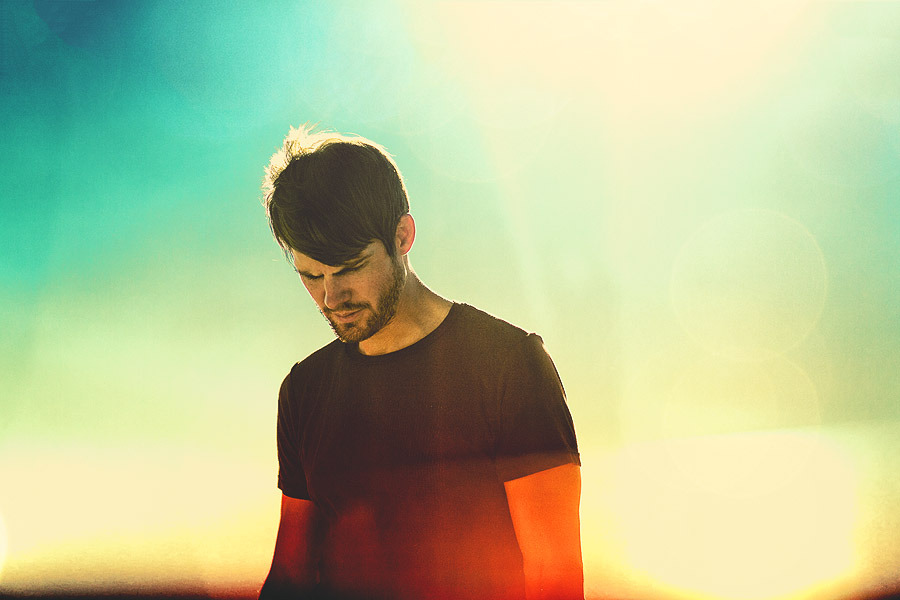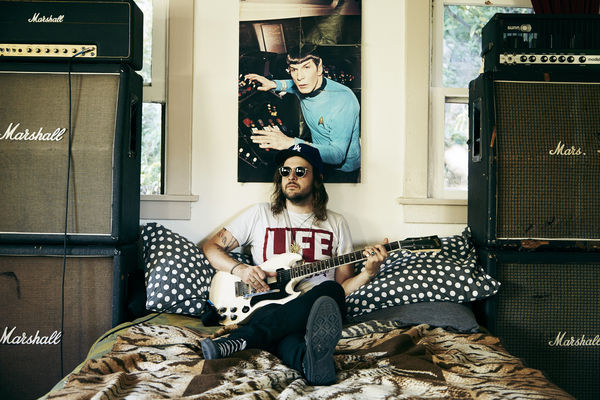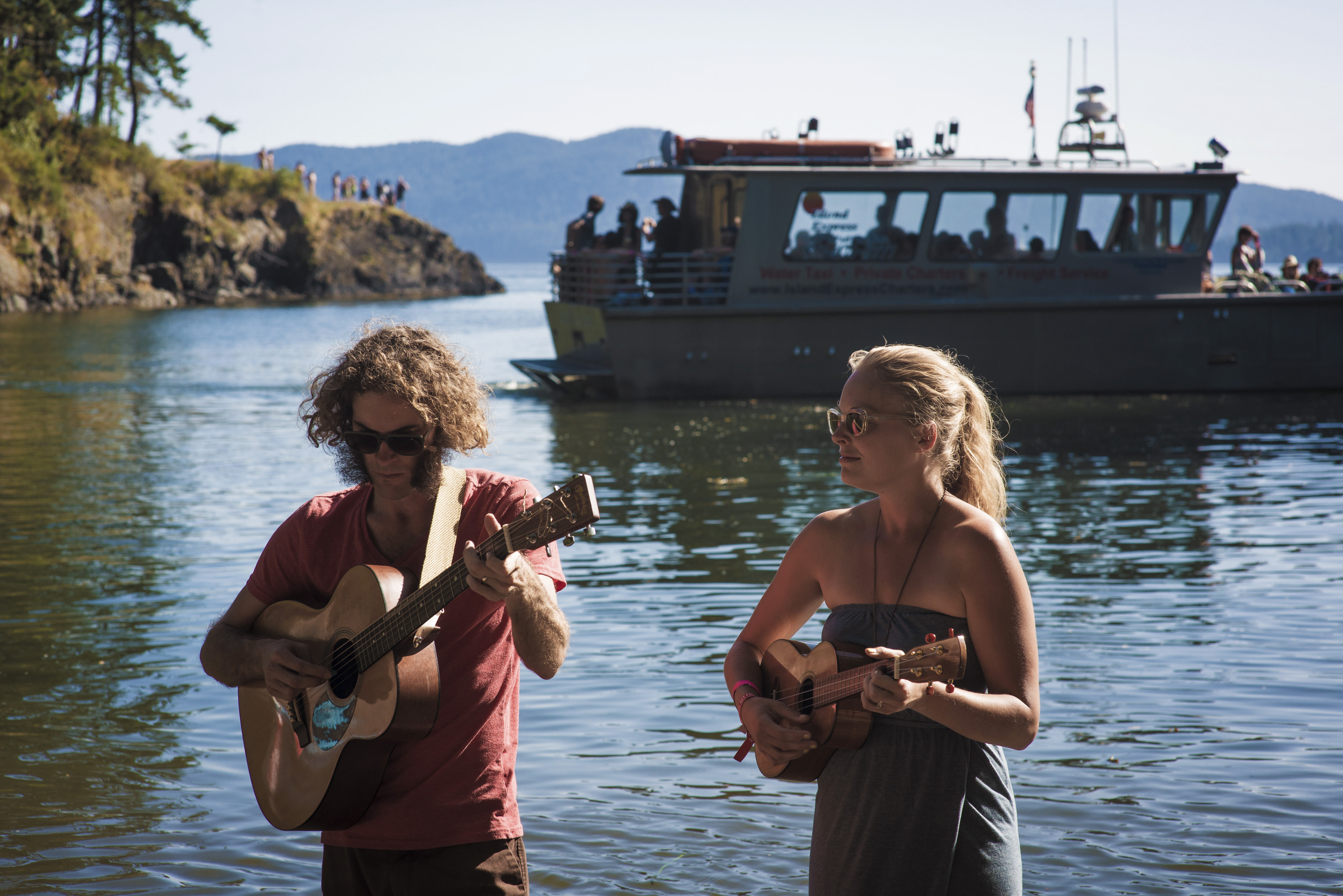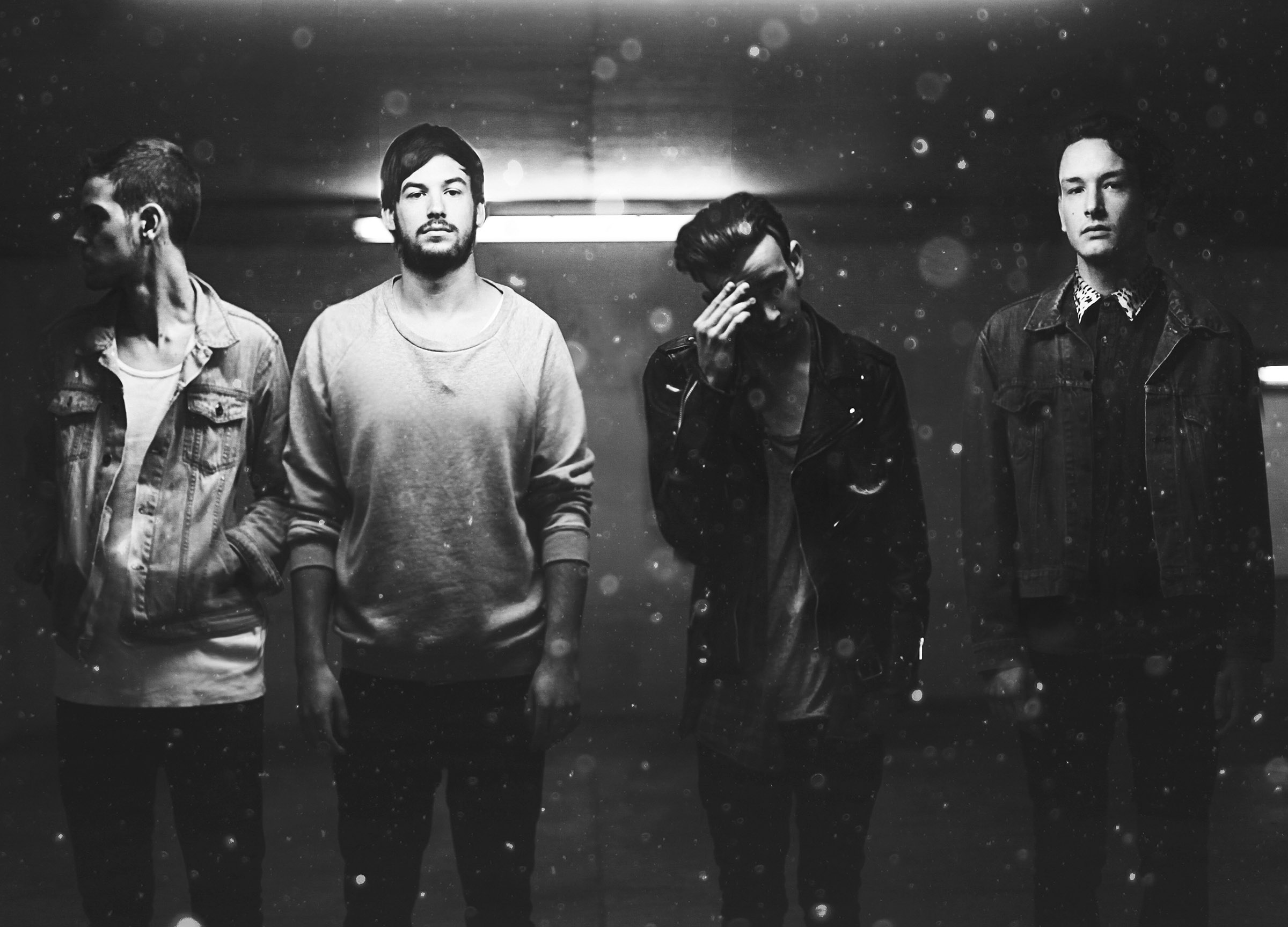While Jimmy Eat World’s latest release Damage, their eighth studio album, is full of love songs, they’re not songs you’d want to listen to while running through a field of daisies with your sweetie. These love songs more accurately reflect the ending stages of a relationship–the anger, the confusion, the realization that the person you thought was “The One” might not be as such. We chatted with lead singer Jim Adkins about writing about the rough side of love, working with producer Alain Johannes, and how the recording process has changed over time. Jimmy Eat World play with X Ambassadors at Showbox SoDo this Monday (7/15).
Where did the inspiration come from to write a collection of complex love songs? It’d been awhile since I’d tried to write love songs, and that’s what happened. I was watching the Grammys a few years ago when Adele was cleaning up. I thought, “Hey, she’s an Adkins. I can do that!” [laughs]. I guess Damage is my attempt at writing an Adele record.
Do you often draw inspiration from other artists? You never really clock out of this gig. You’re always looking. For every one I get that goes some place, there’s uncountable numbers of ideas that don’t go anywhere. Some are really good ideas that you feel strong about; they just never produce anything. Some are really bad ideas that you explore just because they engage you somehow, and they lead to a place you didn’t expect.
Is it easier to write about the rough side of love? There’s more of a story there. If you’re singing about how happy you are, that doesn’t engage me [laughs]. Good for you, but it’s not interesting. There’s no story.
How did you choose “I Will Steal You Back” as the first single? It’s partly our management company and record label. I’ve always thought we were guitar-based melodic rock. That was a good example of what we’re doing. The idea of choosing a single is a strange, antiquated thing because, the truth is, the second one person has your music on their computer, it’s pretty much free for the world. The single is something that you feel excited about showing somebody who had never heard your band before. In that regard, I would be fine with any song on the record [laughs].
You all stayed at producer Alain Johannes’s house while recording. How was that? It’s been awhile since we did something from scratch with a producer in the room. They’re not as emotionally invested in the project, yet driven enough to want to see it to the best completion possible. You can get lost working on your own, in the small details that may not matter in the long run. It all counts, or so you think. Working with Al was great because it was about not overthinking things. If something feels right, it’s right. Move on.
I know you all wanted everything to be finished at Al’s house. Was the “if it feels right, it’s right” frame of mind part of that idea? Yeah, we made our last two albums at our rehearsal space in Arizona, and we’re not the best at setting self-imposed deadlines. We’ll continue to try more stuff and add more things. Part of the reason we wanted to get out of here is to have a finite recording period.
In an interview, drummer Zach Lind mentioned doing some recording on analog. In the studio when you’re building a song, you’re always reacting to what you’re hearing. What you hear informs what else you want to hear. Listening to things playing back off of tape instead of a computer, it’s a difference, and it informs everything else about how you’re building a song from there. We wanted to use what we felt, for us, was the best of working in analog and in digital. Al’s place provided that.
Does the writing and recording process get easier as time goes along? Not that it doesn’t get easier, but it’s still a challenge.
What’s easier? There’s a clearer picture of what we’re trying to do with each song, not just experimenting, searching for this thing. You know what the thing is, and you’re searching for a more realized idea as you get older and have more experience. That makes it easier on some levels because you’re not wasting time searching for the thing, but it also makes it more difficult because you’re not satisfied until you have the exact thing you’re looking for.
Does it feel like you have to set the bar higher with each record? I see it more like, “what can you do to make it the full, complete, realized version of your idea?” You’re always searching for what’s going to be the best for this song. That’s driven by your experience in making records and your physical abilities. You’re not necessarily competing with yourself against your past work; you’re competing with yourself in the present. Trust me, that’s enough pressure as it is [laughs].
The band turns 20 this year and Futures turns 10 next year. Are you planning any special celebration? I imagine so, but there’s no plans yet. It’s a big deal so we’ll do something, I just don’t know what. There will be cake. There will be punch and pie.
Sounds like a party! We’re getting crazy [laughs]!
